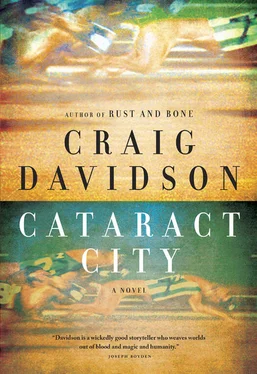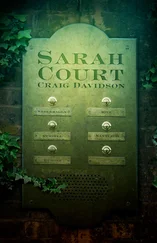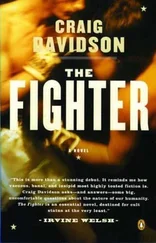
THE DOG, A PIT BULL NAMED BANDIT, had been owned — much as anyone can own such an animal — by Igor Bearfoot, presently deceased. It nearly tore my hand off.
I’d trailed Bearfoot’s Taurus down a side road and pulled into the cut-off a minute after its tail lights dimmed. The car was parked under a naked maple. I’d watched Bearfoot step out with Duncan. I’d been easing down a hill carpeted in dead leaves, pursuing them, when the dog attacked.
I felt it coming: a swift-moving something springing forward on my right side. It came low, submarine-style, hitting me at the hips in a frenzy of teeth and muscle. For an instant I thought it was a wolverine but then I saw the metal studs glinting on its collar.
It slammed me broadside and we tumbled down the slope, the dog angling for my windpipe. I’d thrust one arm between its forelegs as its jaws sank into my wrist through the thin fabric of my jacket. I kicked it away but its paws dug into the ground, yanking me flat. I scrambled to my knees, slipping on the mouldy layer of leaves, and the dog let go of my arm and went for my skull. There came a fibrous tearing on the top of my scalp, then the piss of blood as warmth trickled down my temples.
My un-mauled hand scrabbled for the revolver in its holster — by then I was turtled on the ground with the dog tearing at my shoulder, trying to worm underneath to rip at my face.
I drew the gun from its holster and reared back; the dog’s body glowed in the moonlight falling through the branches. I levelled the barrel at the centre of that perfect mass and pulled the trigger.
The dog jerked backwards. A mist of blood hung in the air for an instant before dissolving.
The ER doc had taken one look at my mitt and sent me up to the ORs. They called in a big-city blade to do the microsurgery — finger reattachment, skin grafts, nerve pathway and blood vessel reconstruction. My pinkie and ring fingers have a little feeling — the skin permanently prickling with pins and needles, like I’ve slept on them funny — and the skin is vaguely purple, but I can still make a fist.
I’d stayed at the hospital for two weeks; my folks visited often. Mom was retired by then but she knew most of the docs, and one of them, a myopic thoracic surgeon, flirted with her shamelessly until Dad caught on, finally , and told him to knock it off.
One afternoon Dad visited with a pair of hoagies in a sack. “Thought you’d like something other than hospital chow.”
My right was heavily bandaged so I ate with my left, non-dominant hand; a tomato slid out the ass-end of the sandwich, dropping in my lap.
“Hey,” Dad said, as if the fact had just slapped him. “You were born here. Two floors up, in Labour and Delivery. Such a little peanut. Six pounds, three ounces. You came three weeks early and your umbilical cord was wrapped round your waist. You got stuck in the birth canal. One minute everything was tickety-boo and the next machines were beeping and flashing, the room was full of doctors and your mom was whisked to the operating room. Emergency C-section. Back then they didn’t usually let the fathers in, but your mother was known in these halls.
“They had this sheet up, y’know? Mom’s head on one side, delivery docs on the other. I was on your mom’s side and told myself: don’t look on the other side of that sheet . They got you out and slapped your butt and put you in my arms so Mom could kiss you. That’s the unfair part. Your mom goes through sixteen hours of agony and they won’t let her hold you first. What had I done to deserve that gift?
“They told me to wait outside and as I’m leaving, my eyes drift over the sheet. Your mom was open, Owen, wide open. I’m sorry, but if I needed any more proof that your mom was the toughest person I’d ever met — tougher than I’ll ever be — well, I had it then.”
We’d finished the sandwiches and balled the waxed paper, flipping them into the trashcan. Dad made his shot, then retrieved my miss and dropped it in. Stepping into the hall, he glanced left and said, “Three doors down … four? That’s where you stayed after that whole thing in the woods.” He shook his head, eyes on the floor. “Lord, those days. Jerry and me driving around scared out of our skins, hoping to Christ we’d find you. Never again have I felt so purely helpless, and thank God for that.”
He’d returned to the room, sat again and patted my knee under the bedcovers. “After all that, Jerry and I basically stopped talking. I’d pass him in the parking lot — but we were on different levels at work, so it was easy to ignore each other. We kept you and Duncan apart, too — you were still young enough that we could dictate your friends. Maybe everything would have happened the way it did anyway, but I carry the guilt with me. Jerry too, I’m sure. You two kids were tight, and maybe that’s not such a rare thing in boyhood — but it’s an exceptionally rare thing in life.”
He gripped the sheet, fretting with threads frayed from much washing. “This thing that happened on the river with the cigarettes … you talked to Duncan about it?”
I’d wondered: Had I warned Dunk? That was Dad’s real question. The answer was twisted. I had and I hadn’t. Yes, I’d seen him at Smokin’ Joes from the jumpseat of a helicopter, then later I’d spotted him on the Niagara through a pair of high-powered binoculars: Dunk and Drinkwater and Igor Bearfoot on a puntboat, me watching from the bluffs. I’d thought: How much is he paying you, Dunk? A few thousand bucks? There are a million other ways to escape, man. Don’t thin your chances until you’ve only got one .
But Dunk had gone ahead and I’d caught him — my oldest friend. And for what? The cigarettes would keep coming anyway. A man was dead. Dunk would end up going to prison for it. And I’d be the one who sent him.
Had it been my duty to stop him? Maybe Dad thought so. Maybe it was Cataract City Code, Man Code, some bullshit code.
The thing is, I’d wanted to talk to Dunk. About what he was doing, yeah, but about so much more. I wanted to tell him about how the digitized shriek of the precinct phone killed something inside me, as did the fire sprinklers cowled in old spider’s webs. It all made me sick deep into my guts; I see-sawed between wanting to wreck everything and wanting to curl into a ball under my desk and flinch at the hard-soled shoes stomping past. I wanted to tell him how damn little I’d learned in the years since we were boys. It boiled down to this: it’s a lot harder to love than to hate. Harder to be there for those you love — to see them get older, get sick, be taken from you in sudden awful ways. Hate’s dead simple. You can hate an utter stranger from a thousand miles away. It asks nothing of you. It eats you from the inside out but it takes no effort or thought at all.
When the hospital released me, I hadn’t returned to my apartment. What was waiting for me there? One toothbrush in a plastic cup on the sink. A telephone that I’d stare at as if my slit-eyed gaze might cause it to ring.
Instead I went to Clancy’s on Stanley, ordered a shot of rye and a Hed. The man sitting across from me had a scar on his neck: thick and bunched up, the skin as smooth and pink as carnival taffy. His hands trembled as if he was forcing them to do so. A layer of sweat shimmered to the surface of my skin. Why was something always wrong with the men around here? I’d never noticed it as a kid. Why so many missing fingers? The men around here put their hands at the service of a mean utility. Those hands got crushed between rollers at the Bisk, melted to stumps by arc-welding torches at the shipworks. I wanted none of it, was humiliated by it in some untranslatable way. But here I was — part of the fabric again.
Читать дальше













